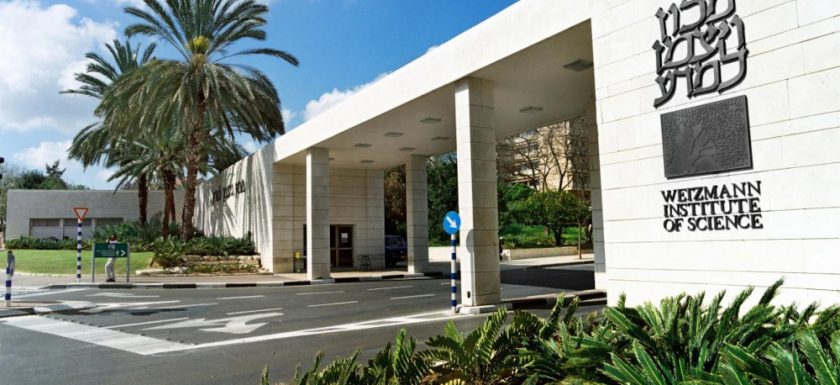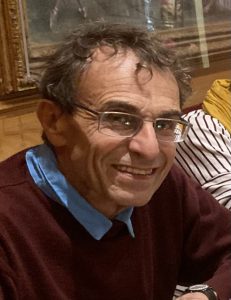
The Helmholtz-Zentrum Berlin (HZB) has long-standing cooperations with research institutions in Israel, often leading to close friendships over the years. One such friendship developed with David Cahen. As a renowned Professor of Chemistry, Physics and Material Research (emeritus), he runs a group at the Weizmann Institute of Science (and at Bar Ilan University) in Israel, where he works today on sustainable materials for energy conversion, especially Solar Cells. At the end of his fellowship at HZB in the month of September 2023, he told Ulrike Goldenblatt what he took away from his time in Berlin. (Please note, this interview was held before the atrocious terrorist attacks on Israel and its citizens on October 7th and in one spot amended by DC a day after that attack).
Ulrike Goldenblatt: Professor Cahen, you arrived here on a fellowship granted by the Helmholtz Association, and you chose HZB as your workplace. How long were you here and what was your initial plan to work on? How or in what way did it deviate in the end?
 David Cahen: I came for one month and intended to interact with and try to be of help to as many interested students as possible, and learn from my HZB colleagues about their research, while also highlighting a central issue in my research. Indeed, not all of that worked out, but as this is not the first time that I spent a month at a different place, that was not a surprise; one adapts and I did; over-all, it was a great experience!
David Cahen: I came for one month and intended to interact with and try to be of help to as many interested students as possible, and learn from my HZB colleagues about their research, while also highlighting a central issue in my research. Indeed, not all of that worked out, but as this is not the first time that I spent a month at a different place, that was not a surprise; one adapts and I did; over-all, it was a great experience!
What projects were you able to pursue, professionally and private ?
I think I did manage to generate some interest in the phrase “Sustainable Energy needs Sustainable Materials”, also for those that did not take my HI-SCORE course.
What was the most surprising for you on this visit?
Apart from the larger than expected (by me) impact of the Wannsee-Adlershof separation, there were no major surprises regarding students, as I have interacted with many types of students. In Berlin, on the positive side the public transport was much better than I expected, notwithstanding annoying cancellations etc., also compared to what I know from places like NYC, Boston, Paris (Tel Aviv is several categories lower). On the negative side, I had not expected biking to be more dangerous than I am used to, and, yes, the number of smokers on the streets.
You gave a lecture on “Sustainable Energy Conversion needs Sustainable Materials” at HZB and at Potsdam University. Who is, according to your opinion, today on the forefront of these considerations in their research? And in general, are we making progress with that?
I won’t give names except HZB, but in general the art of lip-service is highly developed in this subject area, although not everywhere to the same extent. HZB and the university groups I interacted with are highly focused on generating energy from the sun and in that respect, this is certainly a very major center.
Does internationalization of the students work in Germany and specifically at HZB?
Yes, so it seems from the (limited) interaction I did have with students, also because of the international character of the city. At Weizmann I think there is a wider spread of the support umbrella, but then, we have (and always had) to make extra efforts, given the political situation in Israel (even before the 2023 events).
What did you notice different compared to your home institution, the Weizmann Institute?
We have a wider support net for the students, especially the foreign ones, as is sadly, but clearly shown by the near-immediate actions taken to facilitate evacuation and altogether safeguarding of our foreign students and PDs, well before their governments sprang into action. The distances, the fact that HZB is spread out, while the Weizmann Institute is on just one, easily walkable campus, means that you miss out on “corridor science”, which is an important factor back home. Being next to a large, vibrant city is a big asset for HZB. A further feature is its association with a mix of universities.
As a member of the steering committee in HI-SCORE research school, you talked to some of the member doctorands, and PI involved in the project. What would you like to see continued there in the future?
That is work in progress. So, let us wait and see.
And finally, what would you like to give the young scientists who read this as an advice from what you observed during your stay?
Be prepared, certainly after you have completed 20-25% of your PhD research period, to answer clearly what is the problem you want to solve and the question you want to answer in your research, AND, why, if you succeed, will it matter (to you and where applicable, in a broader sense). So, have an elevator pitch ready, not for PR, but for yourself.
And of course, how many km did you allow yourself to ride your bicycle through the city during your stay?
Less than I had hoped but still some 70+ km I’d guess.
Toda raba!
Note: The interview was conducted by Ulrike Goldenblatt, who coordinates the international graduate program HI-SCORE (Hybrid Integrated Systems for Conversion of Solar Energy) together with PD Daniel Abou-Ras. HI-SCORE has been running since 2018 for the purpose of fostering research on solar cells in cooperation with Israeli academic institutions, and in support and exchange of the doctoral researchers involved. For more information, please visit here: HI-SCORE-Website
https://www.adlershof.de/en/news/hzb-launches-the-hi-score-international-research-school
Recommendation: Please watch or read the video-statement by David Cahen on self healing new materials for solar energy conversion: https://llx.fr/site/index.php/2022/06/06/wiggling-and-giggling-in-materials-fremissement-dans-les-materiaux/
